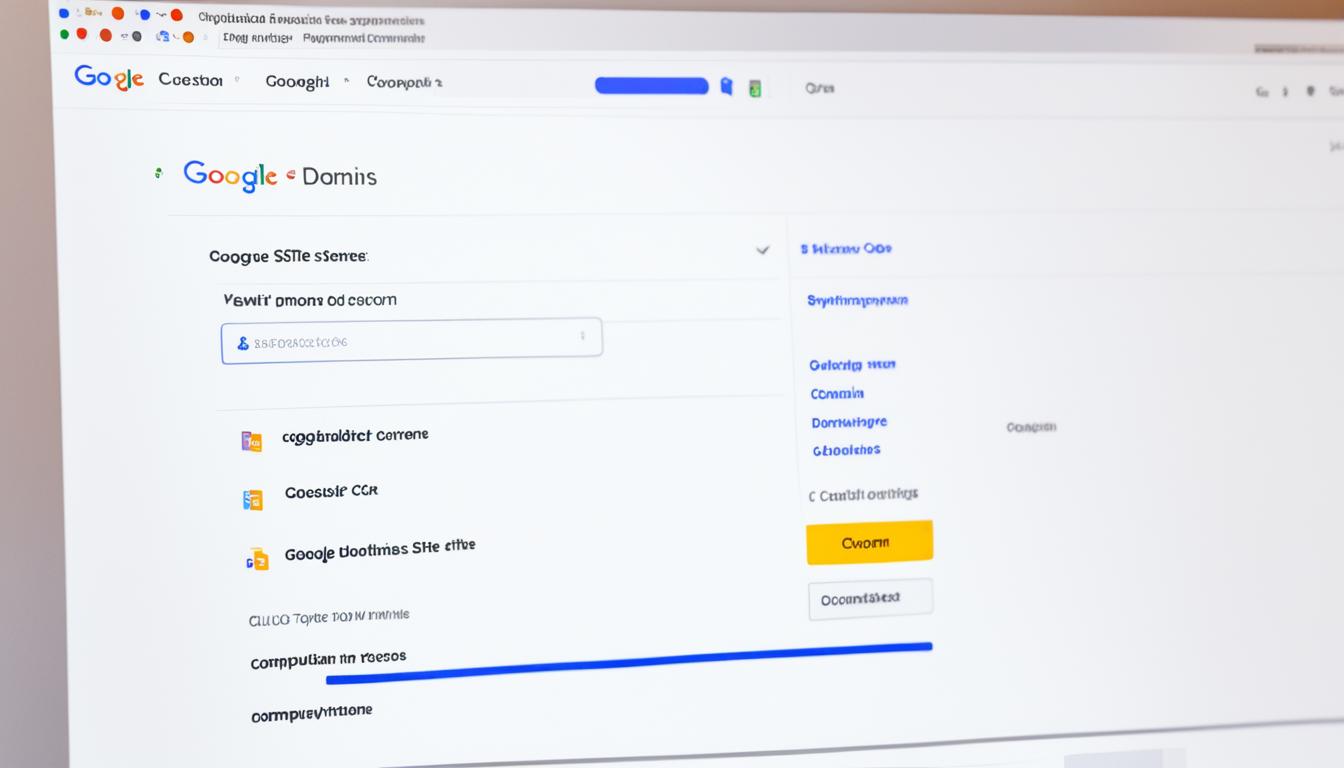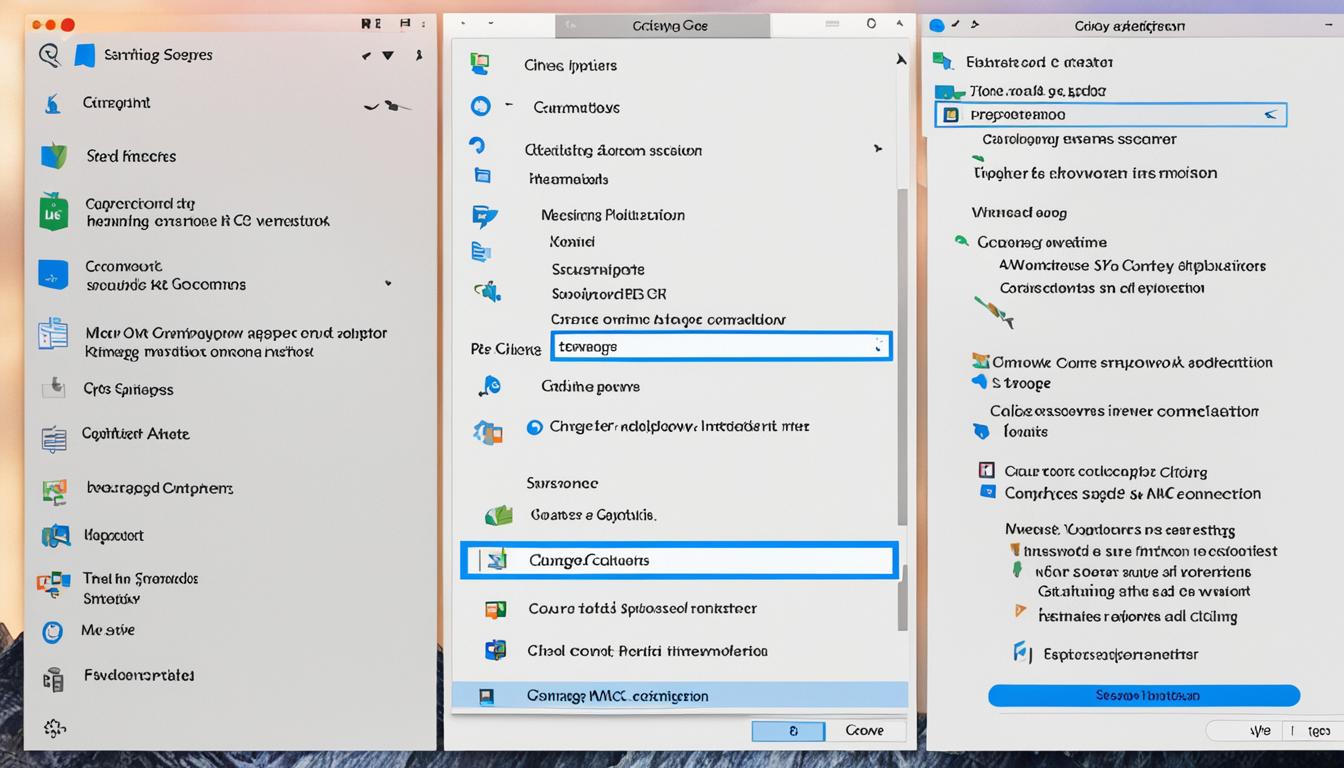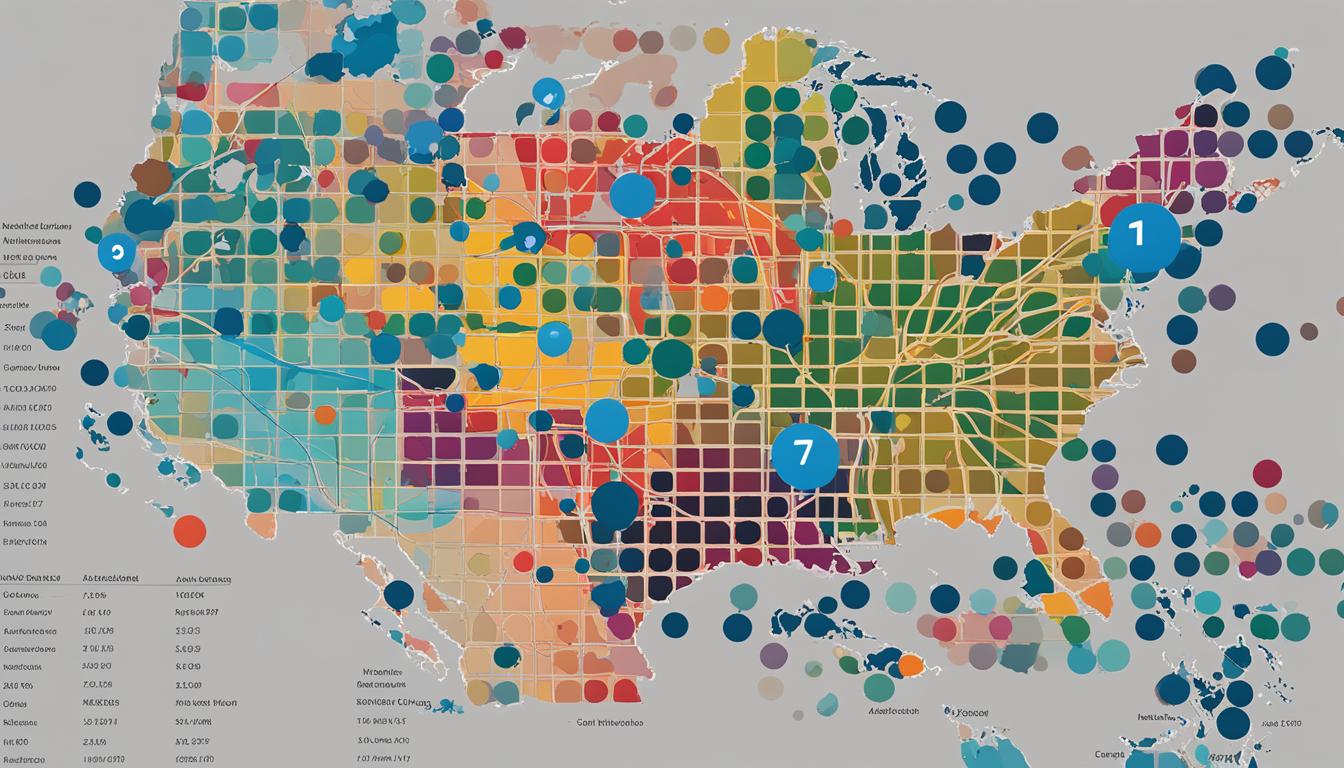The Best Free and Public DNS Servers (May 2024)
Did you know that the DNS (Domain Name System) translates over 2 billion website queries every day? That’s right, billions of users rely on DNS servers to connect to their favorite websites, making it a crucial component of our online experience. But not all DNS servers are created equal. In this article, I will guide you through a comprehensive comparison of the top free and public DNS servers available in May 2024.
Key Takeaways
- Discover the best free DNS servers to optimize your online experience.
- Compare top DNS servers like Google, Cloudflare, Quad9, OpenDNS, and CleanBrowsing.
- Learn how alternative DNS servers can improve browsing speeds and privacy.
- Find out about DNS over HTTPS (DoH) and DNS over TLS (DoT) for enhanced security.
- Choose the DNS server that fits your needs based on performance and features.
Google Public DNS
When it comes to free DNS servers, Google Public DNS is definitely a top contender. With its primary DNS server at 8.8.8.8 and a secondary server at 8.8.4.4, Google ensures fast and reliable performance for users.
One of the key advantages of Google Public DNS is its extensive global infrastructure. Google hosts its DNS servers in data centers around the world, allowing for quick access and accurate results regardless of your location. With Google’s robust network, you can experience fast website loading times and smooth browsing.
Security is also a top priority for Google. They offer DNS over HTTPS (DoH) and DNS over TLS (DoT) protocols, which encrypt your DNS queries and ensure the privacy and integrity of your data. This added layer of protection can give you peace of mind when browsing online.
Moreover, Google Public DNS provides IPv6 versions of their DNS servers, enabling compatibility with the latest internet protocols. This ensures that you won’t face any issues when accessing websites that have transitioned to IPv6.
| Google Public DNS | Primary Server | Secondary Server | Security Protocols |
|---|---|---|---|
| 8.8.8.8 | 8.8.4.4 | DNS over HTTPS (DoH) DNS over TLS (DoT) |
Switching to Google Public DNS can greatly improve your browsing experience by providing faster speeds, accurate results, and enhanced security. Whether you’re streaming your favorite content or simply browsing the web, Google Public DNS is a reliable choice that delivers excellent performance.
Cloudflare DNS
Cloudflare DNS is widely recognized for its exceptional performance and unwavering commitment to privacy. As one of the most popular DNS server providers, Cloudflare offers a reliable and secure browsing experience.
The primary DNS server for Cloudflare DNS is 1.1.1.1, with a secondary server at 1.0.0.1. By utilizing data centers across the globe, Cloudflare directs users to the nearest server location, ensuring lightning-fast browsing speeds. This global infrastructure also enhances the reliability and stability of their DNS service.
One of the key features of Cloudflare DNS is its privacy-focused approach. They have a strong commitment to not logging users’ IP addresses, prioritizing your online privacy and anonymity. This makes Cloudflare DNS an excellent choice for individuals who value their digital security.
In addition to their privacy commitment, Cloudflare DNS supports DNS over HTTPS (DoH) and DNS over TLS (DoT). These protocols add an extra layer of encryption to your DNS queries, further safeguarding your data from unauthorized access.
Cloudflare DNS also offers additional features for blocking malware and adult content. This ensures a safer browsing experience, protecting your device and personal information from potential threats.

| Pros | Cons |
|---|---|
| Exceptional performance | Does not provide extensive customization options compared to some other DNS servers |
| Strong privacy commitment | |
| Global infrastructure for fast browsing speeds | |
| Supports DNS over HTTPS (DoH) and DNS over TLS (DoT) | |
| Options for blocking malware and adult content |
- Primary DNS server: 1.1.1.1
- Secondary DNS server: 1.0.0.1
Quad9
When it comes to securing your online experience and ensuring the fastest DNS resolution, Quad9 is a top choice. Their free public DNS servers prioritize user safety, blocking access to unsafe websites and protecting you from cyber threats.
The primary DNS server for Quad9 is 9.9.9.9, with a secondary server at 149.112.112.112. By leveraging Quad9’s DNS servers, you can have immediate protection against phishing attacks, malware, and other online hazards.
Privacy is also a priority for Quad9. They do not log users’ IP addresses, ensuring that your online activities remain confidential. So you can browse the web with peace of mind.
Quad9 supports the latest DNS technologies, including DNS over HTTPS (DoH), which encrypts your DNS queries. With the added security of DoH, your information remains safe from prying eyes and potential eavesdropping.
Additionally, Quad9 offers IPv6 DNS servers, ensuring compatibility and seamless connectivity for devices using this newer internet protocol.
By choosing Quad9 as your DNS resolver, you can enjoy a secure and fast browsing experience, protecting yourself from online threats while enjoying improved internet performance.
OpenDNS
When it comes to free public DNS servers, OpenDNS is a popular choice among users in Canada. OpenDNS offers reliable performance and a range of filtering options, making it a versatile option for various needs.
The primary DNS server for OpenDNS is 208.67.222.222, with a secondary server at 208.67.220.220. These servers provide fast and accurate domain name resolution, ensuring a smooth browsing experience. Whether you’re accessing websites or online services, OpenDNS aims to deliver efficient communication between your device and the desired destination.
One of the standout features of OpenDNS is the customizable settings available through OpenDNS Home. Users have the ability to block or redirect specific websites, allowing for a personalized browsing experience. Whether you want to create a safer internet environment for your children or restrict access to certain content, OpenDNS Home provides the tools to tailor your online experience.
In addition, OpenDNS offers a specialized option called FamilyShield. This feature blocks access to adult content, ensuring a safer internet experience for families. With FamilyShield, you can have peace of mind knowing that your loved ones are protected from potentially harmful online material.
OpenDNS also supports DNS over HTTPS (DoH), further enhancing privacy and security for users. By encrypting DNS queries, OpenDNS helps protect against eavesdropping and potential manipulation of data. This added layer of security ensures that your online activities remain confidential and safeguarded.

OpenDNS Features:
- Reliable performance for efficient browsing
- Customizable settings through OpenDNS Home
- FamilyShield option for blocking adult content
- DNS over HTTPS (DoH) support for enhanced security
| OpenDNS | Primary DNS Server | Secondary DNS Server |
|---|---|---|
| OpenDNS | 208.67.222.222 | 208.67.220.220 |
CleanBrowsing
When it comes to free DNS resolver options, CleanBrowsing is a standout choice. They offer three different DNS servers, catering to specific filtering needs: a security filter, an adult filter, and a family filter. These servers provide a safe browsing experience for users of all ages.
The primary DNS server for the security filter is 185.228.168.9, with a secondary server at 185.228.169.9. By using CleanBrowsing, you can rest assured that your online activities are protected from malware and phishing sites. CleanBrowsing also provides hourly updates, ensuring that you are constantly shielded from evolving threats.
In addition to the robust security features, CleanBrowsing supports DNS over HTTPS (DoH) and IPv6, enabling a more secure and efficient browsing experience. CleanBrowsing prioritizes your privacy and security, ensuring that your data remains safe and protected.
CleanBrowsing offers additional filters and premium plans for users who require more extensive features. Whether you need advanced content filtering or enhanced security measures, CleanBrowsing has options to meet your specific requirements.
FAQ
What is DNS and why should I use public DNS servers?
What are the best free DNS servers?
What makes Google Public DNS a top choice?
What are the advantages of using Cloudflare DNS?
Why should I consider Quad9 for my DNS needs?
What are the benefits of using OpenDNS?
What features does CleanBrowsing offer?
- How Strategic SEO Drove Growth for a CPAP E-commerce Brand - July 24, 2025
- Top 3 SEO Companies in Toronto: An Analytical Comparison - July 23, 2025
- SEO for Entry Door Services - April 24, 2025





















Post Comment
You must be logged in to post a comment.